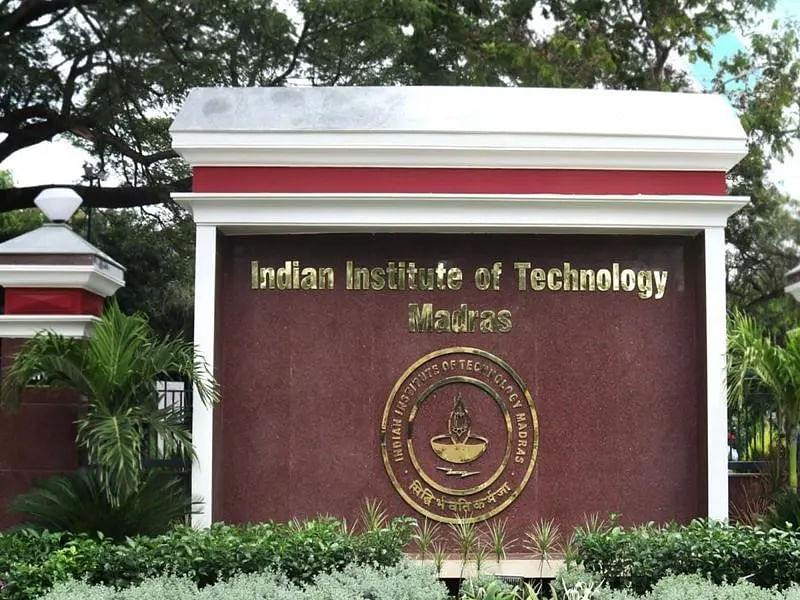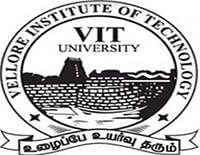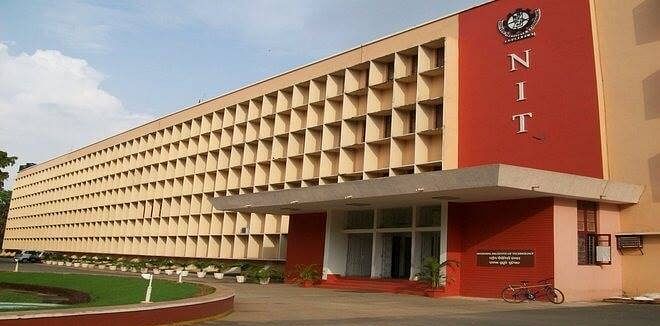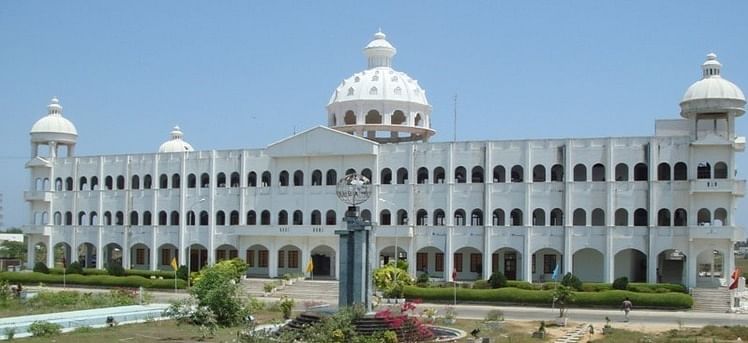B.Tech Biomedical Engineering: Course Details, Eligibility, Fees, Admission

B.Tech Biomedical Engineering is a four-year undergraduate course that focuses on applying medicine and healthcare to engineering concepts and materials and is a multidisciplinary STEM field that blends biology and engineering. The growing demand for biomedical engineers is related to the general shift in society towards the regular use of machinery and technology in all aspects of life. There are ample job opportunities for B.Tech Biomedical Engineering degree holders in government and the private sector.
Table of Contents
- About B.Tech Biomedical Engineering
- Eligibility Criteria for B.Tech Biomedical Engineering
- How To Get Admission for B.Tech Biomedical Engineering?
- Popular Entrance Exams for B.Tech Biomedical Engineering
- Top 10 B.Tech Biomedical Engineering Colleges in India
- Fee Structure for B.Tech Biomedical Engineering
- Syllabus and Subjects for B.Tech Biomedical Engineering
- Why Choose B.Tech Biomedical Engineering?
- Preparation Tips for B.Tech Biomedical Engineering
- Scope for Higher Education
- Salary of a B.Tech Biomedical Engineer
- Career Options After B.Tech Biomedical Engineering
- Skills That Make You the Best Biomedical Engineer
B.Tech Biomedical Engineering Course Details
| Degree | Bachelors |
| Full Form | Bachelor of Technology in Biomedical Engineering |
| Duration | 4 Years |
| Age | No age limit |
| Minimum Percentage | 50% - 60% in 10+2 with Physics, Chemistry, and Mathematics as compulsory subjects |
| Average Fees | ₹10K - 4 LPA |
| Average Salary | INR 3.9 LPA (Source: Payscale) |
| Employment Roles | Biomedical Engineer, Software Engineer, Service Engineer, Senior Software Engineer, Field Service Engineer, Healthcare Product Manager, Associate Business Analyst, Medical Application Specialist etc. |
About B.Tech Biomedical Engineering
Biomedical engineering is applied in the diagnosis, examination, treatment, and rehabilitation of healthcare. And it has reached people through implantable medical devices, such as pacemakers and artificial hips, through more futuristic developments such as stem cell engineering and biological organ 3-D printing.
Biomedical engineers vary from other engineering disciplines in that biomedical engineers use and apply an intimate understanding of modern biological concepts. B.Tech Biomedical Engineering subjects include biotechnology, biomechanics, biomedical signal processing, biomedical embedded systems, material sciences, etc. B.Tech Biomedical Engineering job scope is immense in the medical and pharmaceutical sectors.
Also Read: List of Medical Courses after 12th without NEET
Eligibility Criteria for B.Tech Biomedical Engineering
Admission for the B.Tech Biomedical Engineering course requires a minimum of 60% aggregate marks in 10+2 from a recognized board with subjects like physics, chemistry, and mathematics. Aspirants must be 17 years and above of age. Along with the above essential criteria, students must have cleared the standard entrance exams with good scores.
How To Get Admission for B.Tech Biomedical Engineering?
Admission procedure for the B.Tech Biomedical Engineering course is based on the performance in the entrance examination or on a merit basis. Aspirants must satisfy the minimum eligibility criteria, a combination of bachelor’s degree and entrance exam scores. Hence, students need to prepare accordingly for the entrance exams and admission. The course falls under the umbrella of B.Tech and therefore, follows a similar admission procedure. The admission process is different for each college, but the general overview is given below:
Apply for The Course
Fill up the admission form of the entrance exam online or offline. Attach all the documents, including the voter ID card, aadhaar card, domicile, mark sheet of 10th, 12th, and final year graduation mark sheet.
Selection Criteria
Colleges announce the cut-off marks after publishing the results. Then the aspirants scoring above the cut-off will participate in online counselling. Applicants would have to provide options of the colleges where they choose to consider admission during online counselling. Based on their ranks, the counselling body will delegate seats to the aspirants. The aspirants who get selected receive the allotment letter. The aspirants have to appear in person for document verification and pay the course fee.
Read More on B.Tech Admission
Check other important B.Tech Courses
Popular Entrance Exams for B.Tech Biomedical Engineering
Students need to appear for some of the entrance examinations held all across the country. Higher cut-off scores is a must to enroll in the best colleges in the nation. Listed below are the popular entrance exams in this field:
A Quick Glance at the B.Tech Biomedical Engineering Entrance Exams
The entrance exam pattern may differ from one conduction body to another. Below are a few similarities between the popular entrance exams:
- Logical reasoning and knowledge-based are commonly asked in these exams.
- Objective questions from maths, physics, and chemistry will be asked.
- The exam’s duration may be around 2 - 3 hours.
- The mode of examination may be online or offline.
Top 10 B.Tech Biomedical Engineering Colleges in India
Listed below are the top ten colleges in the field of biomedical engineering, according to NIRF:
| NIRF Ranking | College |
| 2 | IIT Delhi |
| 8 | IIT Hyderabad |
| 32 | Amity University Noida |
| 37 | SASTRA University Thanjavur |
| 55 | Visvesvaraya Technological University |
| 57 | JNTU Hyderabad |
| 41 | SRM University Chennai |
| 45 | MIT Manipal |
| 67 | NIT Raipur |
| 87 | LPU |
Fee Structure for B.Tech Biomedical Engineering
B.Tech Biomedical Engineering fees range from INR 10,000 to 4,00,000 LPA, depending on the facilities and services provided at the institute.
| Sr. No. | College | Fees Structure per Annum |
| 1 | Lovely Professional University | INR 2.4 Lakhs |
| 2 | Manipal Institute of Technology | INR 3.2 Lakhs |
| 3 | IIT Hyderabad | INR 2.1 Lakhs |
| 4 | Shanmugha Arts Science Technology & Research Academy | INR 1.5 Lakhs |
Syllabus and Subjects for B.Tech Biomedical Engineering
B.Tech Biomedical engineering, being such a diverse branch in itself, has a lot to offer an individual who has freshly graduated. Biomedical engineering research requires the study and practice of physical science, mathematics, thermodynamics, biomechanics, material science, biofluids, tissue engineering, neural engineering, etc. Listed below are some of the subjects taught in this course:
- Biomaterials
- Pharmaceutical Microbiology
- Analytical Techniques in Chemistry
- Synthesis and processing of Materials
- Bioceramics
- Tissue engineering
- Advanced Biomechanics
- Rehabilitation Engineering
- Bioinformatics
- Hospital system Management
Read More: B.Tech Biomedical Engineering Syllabus and Subjects
Why Choose B.Tech Biomedical Engineering?
B.Tech Biomedical Engineering is one of the fastest-growing fields in the world. Economically speaking, each year, the market value of medical diagnostics triples. The way medicine is practiced is changing by groundbreaking developments in medical imaging and medical diagnostics.
In the research laboratories of biomedical engineers worldwide, modern medical devices have altered the way physicians cope with illness and trauma, extending the quality and length of human life.
Ultimately, in fields such as chemistry, materials science, and biology, the future of biomedical engineering is related to both the challenges and difficulties we encounter and advancements and achievements.
What is B.Tech Biomedical Engineering All About?
B.Tech Biomedical Engineering is a four-year undergraduate course that focuses on applying engineering principles to biology and health care. The essential subjects include engineering mechanics, material sciences, biomedical engineering basics, biomedical processes in industries, and electronics circuits. B.Tech Biomedical Engineering job scope is quite broad and diverse. Graduates can get employment in hospitals, diagnostic centers, and medical companies.
What Does a Biomedical Engineer Do?
Biomedical engineers have an exciting career scope. Let's dive deep into the primary task of a biomedical engineer:
Design and Development: Biomedical engineers specialise in designing and developing products that aid in the smooth function of the human body motion. Biomedical devices include artificial heart valves and joint replacements, to name a few.
Working on a Microscopic Level: To find solutions to larger problems, biomedical engineers must function at a microscopic level. Biomedical engineers study cellular behavior to understand disease development better and establish treatments or cures before they become fatal.
Reasons Why Biomedical Engineering Can Fetch You a Rewarding Career?
Biomedical engineering connects engineering and medicine by seamlessly integrating engineering design and problem-solving expertise with medical and biological sciences to enhance healthcare diagnosis, tracking, and therapy.
People's health and well-being are directly benefited by the output of these industries. As a result, the biomedical engineer is often linked to both the humanistic aspect and the advanced technology. Implantable cardiac pacemakers and defibrillators, joint replacement implants, biomedical imaging, novel drug delivery systems, and tissue-engineered skin for grafting are only a few examples.
Read More: B.Tech Biomedical Engineering Jobs and Scope
Preparation Tips for B.Tech Biomedical Engineering
Because of the interdisciplinary nature of biomedical engineering, this is different from the conventional engineering curriculum and necessitates above-average math and science abilities and a willingness to embrace these other fields. Listed below are some tips are given for B.Tech Biomedical Engineering:
Syllabus: Identify the challenging topics and allot more time to work on them.
Exam Pattern: Understand the exam pattern and make a time-bound exam preparation strategy.
Connect with students: Contact senior students who are already doing this course and ask for preparation tips.
Scope for Higher Education
An aspirant can go for M.Tech/M.Sc in Biomedical Engineering, Fluid Mechanics, Material Science, Biofluids, etc. GATE is a good option for an aspirant to enter the best Indian colleges like IISc, IITs, NIT, and other reputed colleges. An aspirant can also pursue their masters from foreign universities and then prepare for GRE. Qualify for the UGC NET and DBT BET exams to pursue JRF, Lectureship, and obtain a PhD. Courses to pursue after B.Tech Biomedical Engineering
- MBA
- M.Tech in Biomedical Engineering
- M.E in Biomedical Engineering
- Ph.D. in Biomedical Engineering
- Advanced Diploma in Clinical Diagnostic Techniques
- Post Diploma Course on Clinical Engineering and Management
Salary of a B.Tech Biomedical Engineer
The average salary in this field depends on the graduate’s experience, problem-solving skills, qualification and performance. But the average starting salary for a freshman is around INR 3.9 LPA. The salary also depends on the sector of work, and job location.
Read More: B.Tech Biomedical Engineering Salary
Career Options After B.Tech Biomedical Engineering
Biomedical engineers work in a broad range of environments and disciplines. There are opportunities to invent, design, and develop new technology in the industry. One can pursue research and push the frontiers of what is medically feasible in academia and test, introduce and develop new diagnostic tools and medical devices, and define safety standards for medical devices in government.
Many biomedical engineers find jobs in cutting-edge start-up businesses or as entrepreneurs themselves. Tissue and stem cell researchers focus on the artificial recreation of human organs, transplants, and helping millions live happier lives worldwide. Listed below are some of the popular career options in this field:
- Biomedical Engineer
- Field Service Engineer
- Quality Assurance Manager
- Technical Engineer
- Assistant Technical Officer
Skills That Make You the Best Biomedical Engineer
Listed below are the essentials of this field:
Analytical Skills: Biomedical engineers must analyse and consider the needs of patients and consumers to design suitable solutions.
Creativity: It's necessary to think outside the box to develop novel and integrative healthcare equipment and devices.
Communication Skills: Biomedical engineers need to articulate themselves clearly when working with patients and, more often than not, in interdisciplinary teams. Consider other people's thoughts and integrate them into the problem-solving process.
Maths Skills: For analysis, design, and troubleshooting, biomedical engineers must use calculus principles and other advanced mathematics techniques (including statistics).
Problem Solving Skills: Biomedical engineers solve crucial problems in complex biological systems because what resolves one problem may have a negative side effect that causes problems for the patient.
Top B.Tech Biomedical Engineering Colleges
Top Engineering Entrance Exams
B.Tech Biomedical Engineering Fee Structure
FAQs on B.Tech Biomedical Engineering
Q: ⭐ What is the scope of B Tech in Biomedical Engineering?
Q: ⭐ What are the major responsibilities of the biomedical engineers?
Q: ⭐What is the salary of Biomedical Engineers in India?
Q: ⭐What are Key areas of focus for Biomedical Engineering?
Q: ⭐ What after B tech Biomedical Engineering?























